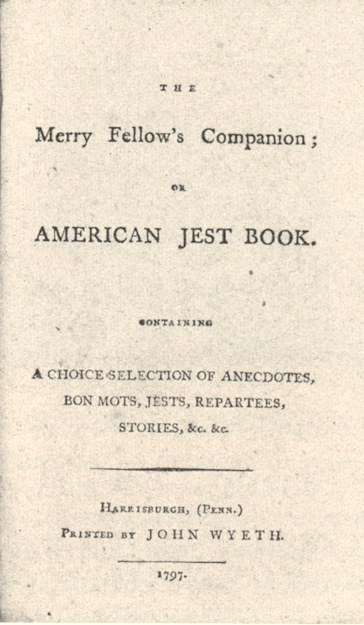American Imprints to 1800 From William Reese

American Imprints to 1800 From William Reese
Rev. Solomon Williams preached a sermon on December 3, 1775, in response to a deep family tragedy for one of Connecticut's foremost families. Mrs. Faith Huntington was the daughter of Governor Jonathan Trumbull, Jr., and her husband, Colonel Jedediah Huntington, served the patriots in the early stages of the Revolution. Mrs. Huntington reportedly witnessed the battle of Bunker Hill, and it sent her into such a state of depression that it "deprived her of reason," such that she took her own life. Rev. Williams had been Faith's father's theology professor at Harvard, and he too died before this sermon was printed in 1777. It's title is The Greatness and Sovereignty of God, Sufficient Reason to Silence Man's Complaint of His Providence, and Put a Stop to Our Striving Against Him. A Sermon Delivered....After the News of the Untimely Death of Mrs. Faith Huntington.... Item 83. $750.
For those who thought the Abolitionist movement was just a 19th century phenomenon, this great conflict that would split the nation less than four score years later was already brewing even before the Constitution was adopted. In 1787, the Pennsylvania Society published The Constitution of the Pennsylvania Society, for Promoting the Abolition of Slavery, and the Relief of Free Negroes, Unlawfully Held in Bondage.... This was no fringe group. Its president was Benjamin Franklin, and other officers included patriots Benjamin Rush, Tench Coxe, and Thomas Paine. Nor was this just a post-Revolutionary society, it having been formed in 1774 while America was still a British colony, primarily by Pennsylvania's Quakers. As a result of their work, Pennsylvania would adopt stricter measures against the slave trade in 1788. Item 131. $3,250.
Here's another early anti-slavery petition, memorializing a presentation made to Congress on December 8, 1791. The title is Memorials Presented to the Congress....by the Different Societies Instituted for Promoting the Abolition of Slavery.... The states represented by these societies were mostly northern, but Virginia is also represented. Leaders of each of the societies represented spoke before the Congress. The book tells us that the petitions were "referred to a select committee." Even then this was a euphemism for "buried." Item 169. $3,750.